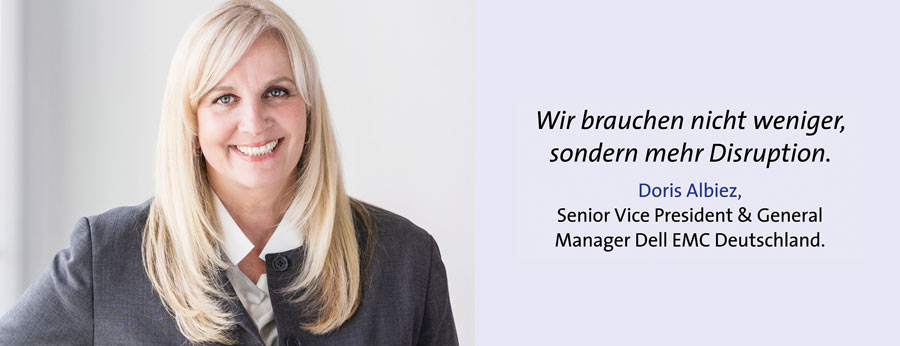This is how we prevent ourselves from becoming superfluous


According to Doris Albiez, the fact that digitization also massively affects highly qualified jobs is being overlooked. It is therefore necessary to think "disruptively" at all levels and also to undertake a general reassessment of gainful employment.
The topic of digitization has had a firm grip on the IT world for several years now. For some time now, there has been increased discussion about the effects of digitization on the world of work.
The fact that advancing automation, extensive networking and the use of artificial intelligence (AI) are making numerous jobs and entire job descriptions obsolete is emphasized by numerous studies.
There is sometimes talk that 40 to 60 percent of all employees could lose their jobs. A recent McKinsey study concluded that "half of all working hours could be eliminated by automation" by 2055, and almost a quarter by 2030.
At the same time, of course, digitization is also creating new jobs. In the IT world in particular, there is widespread confidence that the two developments will roughly balance each other out.
Reference is often made to the introduction of the PC in the 1980s, when many jobs became redundant, but at the same time a whole new branch of industry gave rise to a large number of new professions such as software developers, system administrators or IT consultants; in the end, there were even more jobs than before.
"This analogy to the 1980s is convenient, but very dangerous"
warns Albiez, Senior Vice President & General Manager Dell EMC Germany.
"We cannot simply assume that the history of technology will repeat itself. And this is true of digitization, of all things, which we are at the same time convinced will be disruptive like nothing before.
Previous technological upheavals have always affected simple work processes. It was therefore primarily jobs requiring only low qualifications that fell victim to technological progress.
Digitalization is different: For the first time, the upheaval also affects demanding, highly skilled jobs. This is something completely new and represents an enormous social disruption."
Albiez points out that intelligent systems are already taking over, at least in part, the work of bankers and insurance agents, doctors and lawyers; a development that will increase significantly as AI software becomes more widespread.
All industries and all levels are affected, including the management level, because reduced workforces also require fewer managers.
"Digitalization and here especially artificial intelligence".
Albiez continues,
"is calling into question qualifications that until recently would have been considered completely unthinkable. Automation doesn't stop at so-called knowledge workers, or even digitization professionals themselves."
Rethinking the acquisition society
According to Albiez, digitization therefore necessitates a rethink in other areas as well:
"We have a wealth of fascinating technologies at our disposal today, and we need to find a way to address the challenges of the working world as well.
We must not limit ourselves to thinking only about technology when it comes to disruption, but should also think fundamentally about the connection between work processes, income and livelihood. Thinking disruptively means that we also have to reinvent gainful employment and gainful society."
Horror scenarios about the future of work are therefore not appropriate - as long as you actively shape the issue and don't just hope for history to repeat itself.
"New forms of doing business and working, such as the shared economy or co-working, are already emerging today"
Albiez explains.
"I notice time and again that young people of Generation Y in particular have a new relationship to work. The focus is often on values such as sustainability, an intact social environment, self-fulfillment and, most importantly, on wanting to feel that they are doing something meaningful.
Here, disruption is often already a reality; the 'lifelong desk' is no longer a model for the future. We must intensively promote such concepts, both in companies and in society as a whole. We need more disruption, not less. And we need it at all levels."






